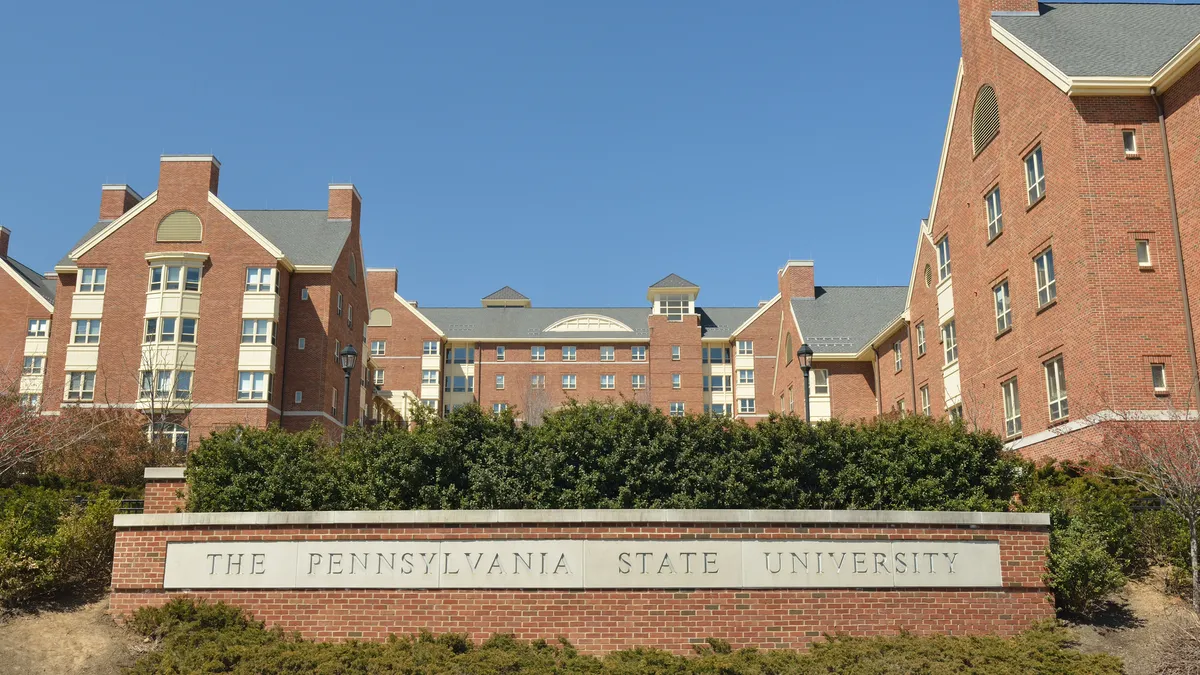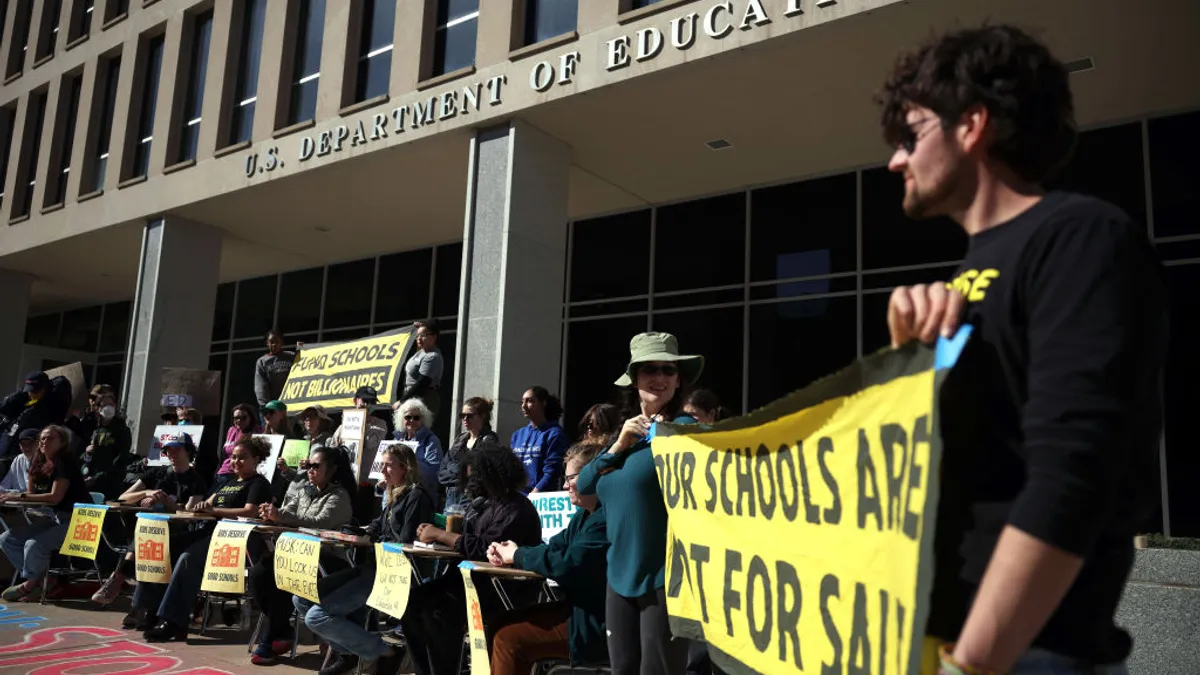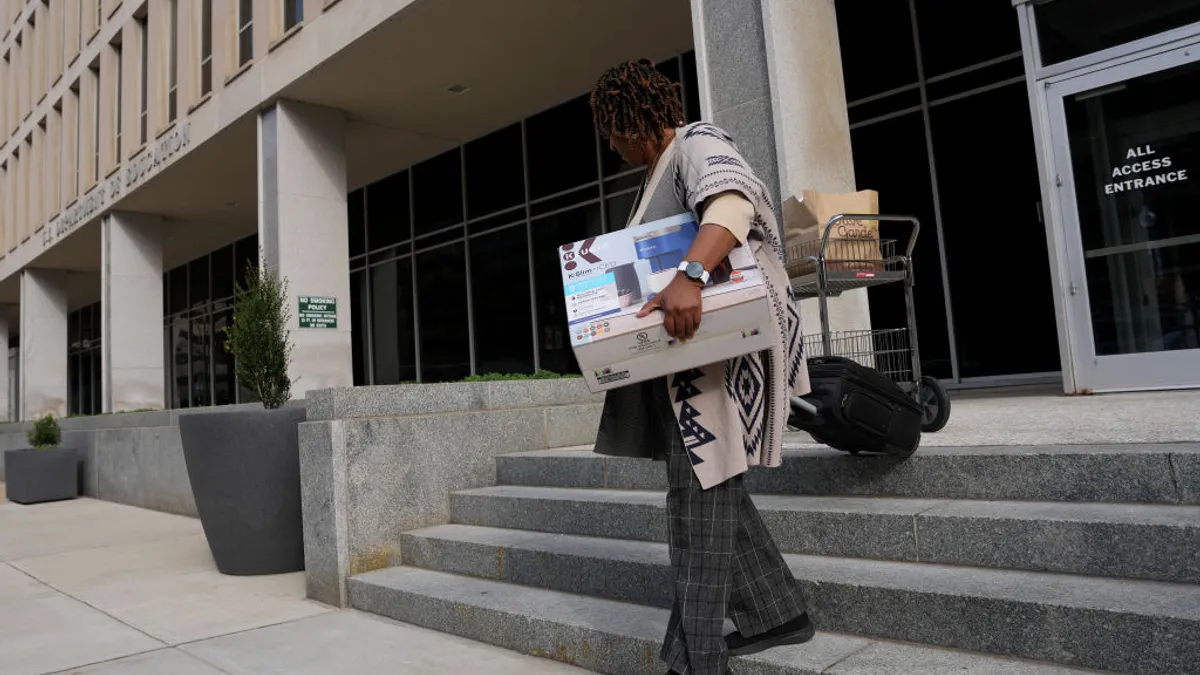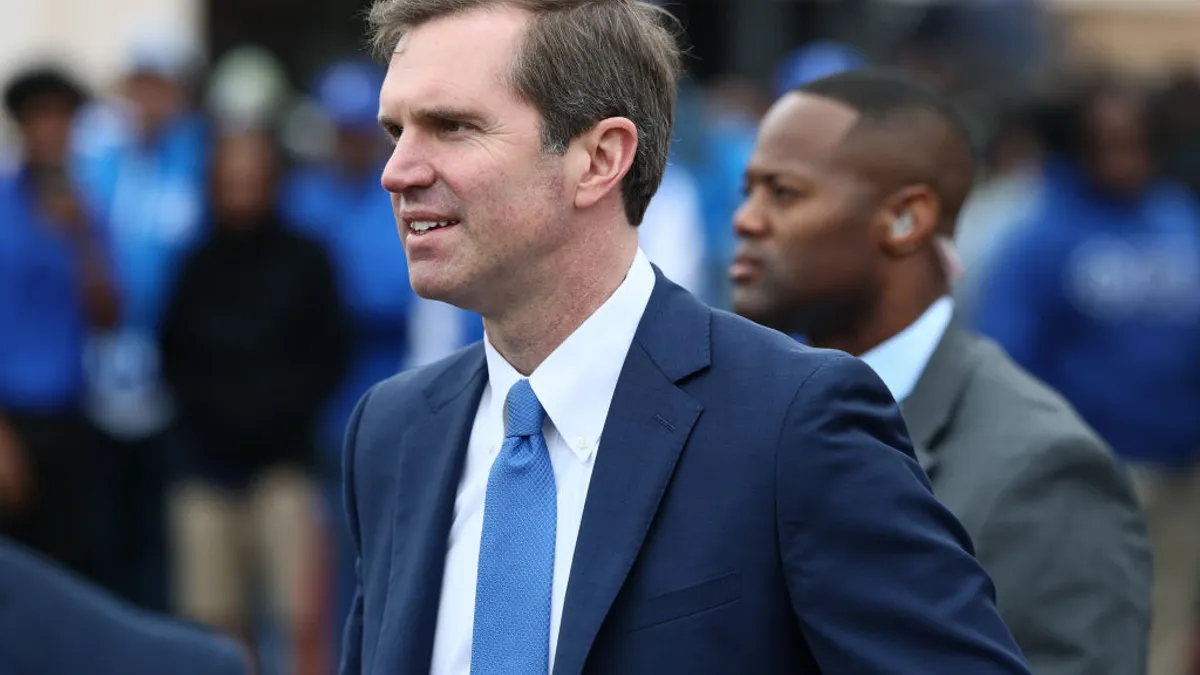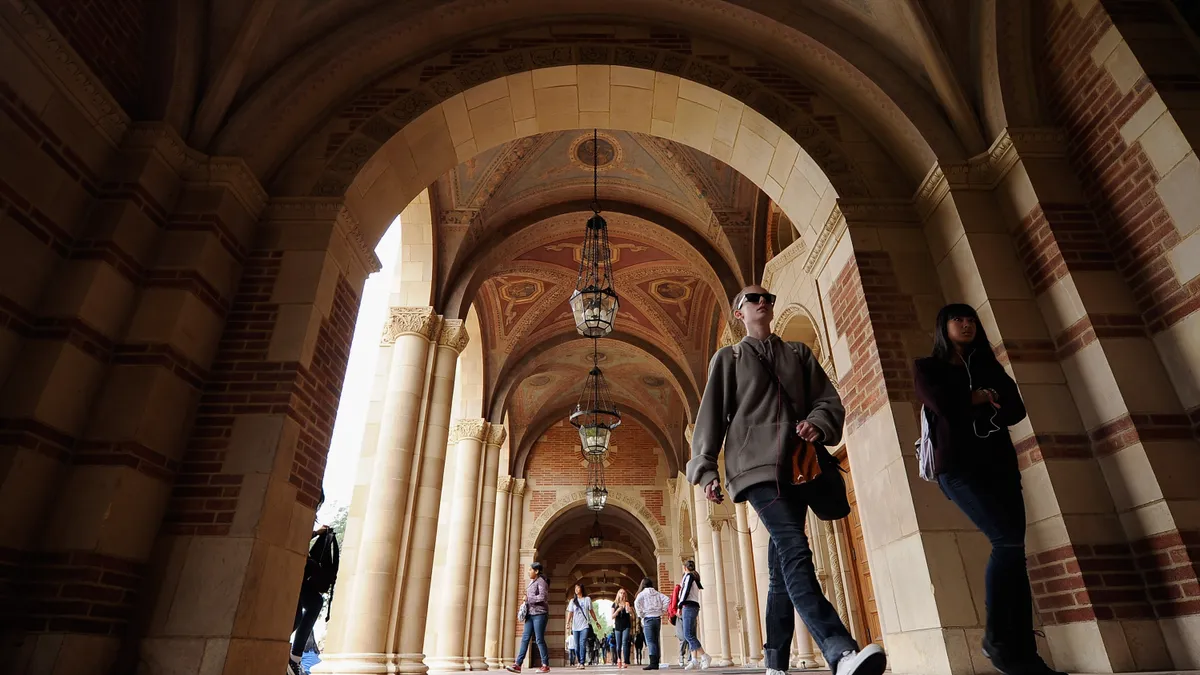A Republican-led crackdown on diversity, equity and inclusion efforts in higher education is ramping up at colleges across the country.
Opponents argue that DEI offices and programs create division and exclude wide swaths of campus from accessing resources. In turn, some advocacy groups have voiced concerns over the broad language used in some anti-DEI legislation, arguing that it could chill speech.
Many states have banned or tried to implement anti-DEI legislation, while others are applying pressure to college officials through intensive reviews. In some cases, college leaders are preemptively winding down DEI initiatives ahead of potential changes in laws.
Below is a roundup of the growing number of colleges shuttering offices and centers created to help groups like Black students, college women and members of the LGBTQ community amid intense pressure and a political tug of war.
Texas
Texas was one of the first states to ban DEI programs and jobs at public colleges. Republican Gov. Greg Abbott signed the DEI ban into law in June 2023, giving Texas institutions just six months to comply before it took effect Jan. 1.
In response, the University of North Texas said in December that it would restructure its Multicultural Center and Pride Alliance into the student affairs office and launch a new Center for Belonging and Engagement.
The university also cited the law when eliminating faculty senate committees and networking groups that focused on specific communities, including employees of color and women, the Dallas Morning News reported last week.
Likewise, Texas A&M University closed its diversity office and its LGBTQ Pride Center. Students protested their elimination, according to The Eagle.
The University of Texas at Dallas eliminated its own DEI center in December. In January, officials created a new center, the Office of Campus Resources and Support. But they shut it down only four months later and eliminated 20 related jobs, with officials again citing the DEI ban.
The University of Texas at Austin, its system's flagship, closed its Multicultural Engagement Center on Jan. 1, when the law took effect.
Lawmakers warned college officials against simply renaming offices and job titles rather than making sustainable programmatic changes. In April, State Sen. Brandon Creighton — a Republican who sponsored the legislative ban — told university system leaders that any effort to circumvent the ban could result in loss of state funding.
Florida
Florida politicians helped lead the nationwide charge against DEI in education. In May 2023, Republican Gov. Ron DeSantis signed a bill banning spending on DEI initiatives at all public colleges.
In response, Florida International University eliminated its DEI office. In May, the University of North Florida similarly shut down its diversity and inclusion office, along with its intercultural and interfaith centers and those focused on women and LGBTQ people, according to local news reports.
In March, the University of Florida said it had closed its Office of the Chief Diversity Officer and laid off all DEI-related employees. Cuts included 13 full-time DEI positions and 15 administrative roles held by faculty, according to The Independent Florida Alligator, a student newspaper.
The institution also suspended programming at the Center for Inclusion and Multicultural Engagement, The Alligator reported. Some student groups said they were left in the dark about the change, and they said it's unclear if the center will reopen. The home page of the center’s website says it is under construction.
Florida State University also dismantled its DEI office, although the Tallahassee Democrat reported in March that the process avoided layoffs by changing job titles and restructuring roles.
Kentucky
The University of Kentucky dissolved its diversity center and reassigned related employees in August as a way of addressing state politicians' concerns over DEI before they enacted legislation.
Conservative Kentucky lawmakers have made repeated attempts to restrict or completely eliminate DEI in higher education. While no bills became law, University of Kentucky President Eli Capilouto suggested their efforts weren’t likely to let up.
“Kentucky legislators have made clear to me in our conversations that they are exploring these issues again as they prepare for the 2025 legislative session,” Capilouto said when announcing the DEI cuts. “If we are to be a campus for everyone, we must demonstrate to ourselves and to those who support and invest in us our commitment to the idea that everyone belongs — both in what we say and in what we do.”
Northern Kentucky University also recently announced it had eliminated its DEI center. President Cady Short-Thompson said that Northern Kentucky’s chief diversity officer had stepped down, according to WCPO.
And the University of Louisville renamed its DEI office as the Office of Institutional Equity. The heads of both the University of Louisville and the University of Kentucky presented their recent changes to DEI programming before lawmakers this week.
North Carolina
A May policy change from the University of North Carolina System's board of governors directed all 17 of its member institutions to eliminate DEI centers, positions and programming. Altogether, the institutions cut just over $17 million in DEI-related funding, which the system asked to be redirected to broader student success initiatives.
The University of North Carolina Wilmington closed its Office of Institutional Diversity and Inclusion and reassigned the cultural and identity centers it ran to the Student Affairs office. It also changed some of these centers’ programming to comply with the new policy. Meanwhile, the University of North Carolina at Charlotte shuttered three DEI centers on its campus, including one focused on academic diversity and inclusion.
And Appalachian State University replaced its Intercultural Student Affairs Office with a student success center.
Like Texas lawmakers, the UNC System’s legal affairs division warned colleges to make substantive changes to comply with the new rule, rather than just tweaking employees' titles. Across the system, colleges eliminated 59 DEI-related positions and restructured an additional 131 jobs.
Nebraska
Public universities in Nebraska eliminated centers and programming that could invoke ire from the state's conservative lawmakers.
The University of Nebraska at Omaha shuttered its Gender and Sexuality Resource Center this summer and moved its services to other divisions after closing its Office of Multicultural Affairs last year. And the University of Nebraska-Lincoln announced last month it would close its Office of Diversity and Inclusion.
A recent Republican bill would have banned DEI at the state’s public colleges, but it failed to advance amid outspoken criticism earlier this year, including from the University of Nebraska system. But the Republican-controlled Legislature could try again during the legislative session next year.
Alabama
In July, the University of Alabama's flagship campus said it would shutter its Division of Diversity, Equity and Inclusion. The move came in response to a new state law, set to go into effect Oct. 1, that bans public colleges from maintaining DEI offices.
The University of Alabama at Birmingham and the University of Alabama in Huntsville also closed DEI offices on their campuses, replacing them with student support centers with a broader focus.
Oklahoma
After Republican Gov. Kevin Stitt ordered the state’s public colleges to review all DEI-related programs and jobs, the University of Oklahoma announced the directive would force it to eliminate all of its diversity offices.
In February, President Joseph Harroz Jr. said in an email to campus that the university's DEI division would be replaced with the Division of Access and Opportunity, reported student newspaper OU Daily. He also said the university would end DEI-related roles and move affected staff members into new positions.
Citing Stitt's order, the university also dissolved a program designed to support women seeking to work in public service.
Correction: A previous version of this article misidentified The University of Texas at Dallas. The story has been updated.







